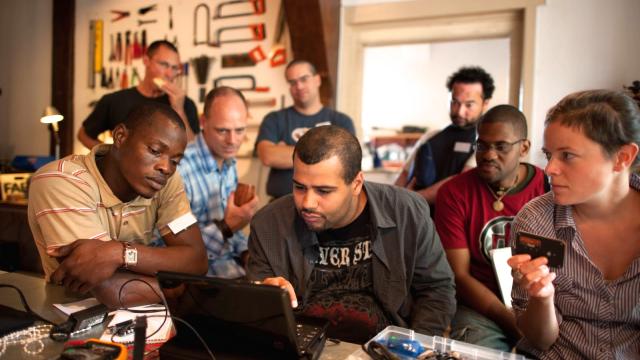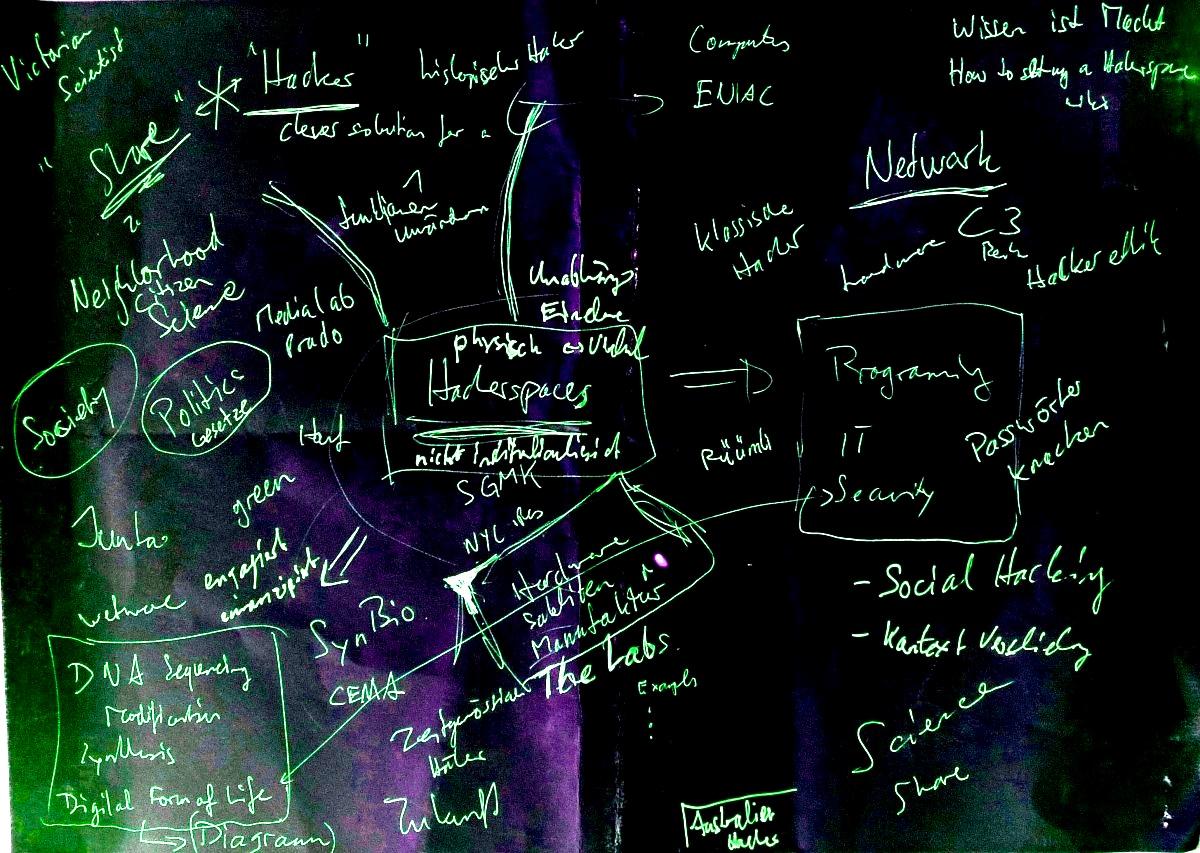
Jeremy Rifkin's new book, "The Zero Marginal Cost Society," brings welcome new attention to the commons just as it begins to explode in countless new directions. His book focuses on one of the most significant vectors of commons-based innovation -- the Internet and digital technologies -- and documents how the incremental costs of nearly everything is rapidly diminishing, often to zero. Rifkin explored the sweeping implications of this trend in an excerpt from his book and points to the "eclipse of capitalism" in the decades ahead.
But it's worth noting that the commons is not just an Internet phenomenon or a matter of economics. The commons lies at the heart of a major cultural and social shift now underway. People's attitudes about corporate property rights and neoliberal capitalism are changing as cooperative endeavors – on digital networks and elsewhere – become more feasible and attractive. This can be seen in the proliferation of hackerspaces and Fablabs, in the growth of alternative currencies, in many land trusts and cooperatives, and in seed-sharing collectives and countless natural resource commons.
Beneath the radar screen of mainstream politics, which remains largely clueless about such cultural trends on the edge, a new breed of commoners is building the vision of a very different kind of society, project by project. This new universe of social activity is being built on the foundation of a very different ethics and social logic than that of homo economicus – the economist's fiction that we are all selfish, utility-maximizing, rational materialists.
Durable projects based on social cooperation are producing enormous amounts of wealth; it's just that this wealth is not generally not monetized or traded. It's socially or ecologically embedded wealth that is managed by self-styled commoners themselves. Typically, such commoners act more as stewards of their common wealth than as owners who treat it as private capital. Commoners realize that a life defined by impersonal transactions is not as rich or satisfying as one defined by abiding relationships. The larger trends toward zero-marginal-cost production make it perfectly logical for people to seek out commons-based alternatives.
You can find these alternatives popping up all over: in the 10,000-plus open access scientific journals whose research is freely shareable to anyone and in community gardens that produce both fresh vegetables and neighborliness. In hundreds of "timebanks" that let people meet basic needs through time-barters, and in highly productive, ecologically minded commons-based agriculture.
Economists tend to ignore such wealth because it generally doesn't involve market activity. No cash is exchanged, no legal contracts signed, and no measurable gross domestic product is generated. But the wealth of the commons is not accumulated like capital; its vitality comes from being circulated. As I describe in my new book, "Think Like a Commoner," the story of our time is the rise of the commons as a new way to emancipate oneself from predatory markets and to collaborate with peers to protect and expand one's shared wealth. This is a story that is being played out in countless digital arenas, as Rifkin documents, but also in such diverse contexts as cities, farming, museums, theaters and indigenous communities.
One reason that so many commons arise and flourish is because they help their participants meet important basic needs in fair, responsive and socially satisfying ways. That's quite attractive to those who are otherwise held captive by conventional, predatory markets. Big agriculture is more concerned with efficiency and profit than ecological stewardship. Large transnationals are more interested in rip-and-run resource extraction (mining, fracking, timber) than in the protection of sacred lands and time-honored ways of life. "Copyright industries" like Hollywood and record labels want to treat all of culture as tightly controlled "product," not as something that is freely shared and built upon.
Nowadays the commons has a special appeal for people of the global South who are often victimized by the "enclosures" inflicted by neoliberal investment and trade policies. Enclosures are the act of privatizing and commodifying previously shared resources. For example, millions of acres of land in Africa, Asia and Latin America are currently being seized by investors in a massive international land grab.
Hedge funds and even the government of South Korea, Saudi Arabia and China are enacting an eerie replay of the English enclosure movement. Commoners who have worked the land for generations as a customary right are being forced to migrate to cities in search of work, where they often end up as paupers and sweatshop employees: a modern-day replay of Charles Dickens' novels.
By the lights of modern economic theory, it's all for the best because it promotes "development" (i.e., consumerism and other market dependencies). But many commoners are now fighting the dispossession and dependencies that enclosures entail by struggling to retain some measure of dignity and self-determination through their commons. The International Land Alliance estimates that 2 billion people around the world depend upon subsistence commons of forests, fisheries, arable land, water, and wild game to meet their everyday needs.
Strangely, the leading introductory economics textbooks in the U.S. virtually ignore the commons except for the obligatory warning about the "tragedy of the commons." They prefer not to recognize that the commons represents an entirely viable but different paradigm of "development" - one that can transcend the unsustainable consumerism, cultural disintegration and economic growth of our time. As the late Nobel Prize winner Elinor Ostrom showed, commons are an entirely sustainable, ecologically friendly model of resource management, contrary to the "tragedy" parable.
Commoners are not all alike. They have many profound differences in their governance systems, management practices and cultural values. And commons are not without their conflicts, struggles and failures. That said, most commoners tend to share fundamental commitments to participation, openness, inclusiveness, social equity, ecological respect, and human rights.
The politics of the commons movement can be confounding to conventional observers because political goals are not the paramount priority; protection of the commons is. Commoners tend to be more focused on "prepolitical" social activity and relationships, which is why commons are embraced by such a wide variety of people. As German commons advocate Silke Helfrich notes in The Wealth of the Commons, "Commons draw from the best of all political ideologies." Conservatives like the tendency of commons to promote responsibility. Liberals are pleased with the focus on equality and basic social entitlement. Libertarians like the emphasis on individual initiative. And leftists like the idea of limiting the scope of the Market.
It is important to realize that the commons is not a discussion about objects, but a discussion about who we are and how we treat each other. What decisions are being made about our resources? Does economic activity satisfy basic human needs and honor human rights and dignity? These kind of discussions are not often heard in in conventional business and policy circles, alas.
To conventional minds, the idea of the commons as a paradigm of social governance appears either utopian or communistic, or at the very least, impractical. But a diverse, eclectic universe of commons around the world demonstrates otherwise. It is the neoliberal project of ever-expanding consumption on a global scale that is the utopian, totalistic dream. It manifestly cannot fulfill its mythological vision of human progress through ubiquitous market activity and greater heaps of private consumption, if only because it demands more from Nature than it can possibly deliver - while inflicting too much social inequity and disruption as well.
Fortunately, the Internet and indigenous peoples, the re-localization movement and hackers, community foresters and fishing cooperatives, and many, many others, are showing that the commons can be an effective vehicle for social and political emancipation. Jeremy Rifkin's astute analysis of this powerful trend will help open up a much-needed discussion in the stodgy precincts of conventional economics.
Originally published by Huffington Post

3 WAYS TO SHOW YOUR SUPPORT
- Log in to post comments













